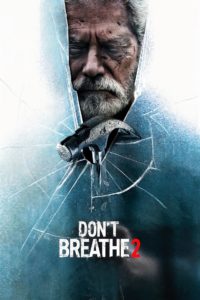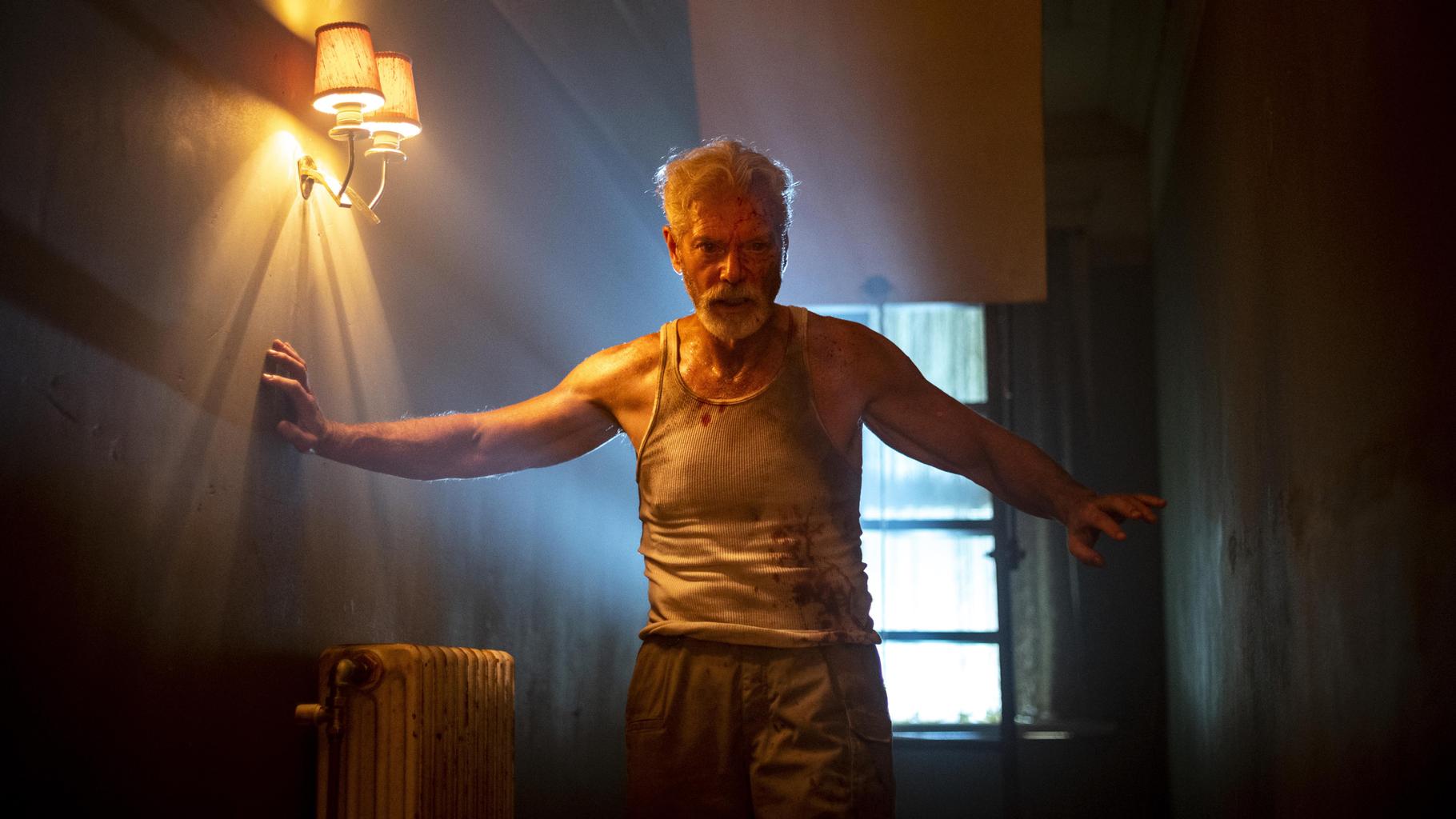Afterlife of the Party: An Exploration of Female Friendship
Netflix's Afterlife of the Party might fall into the rom-com genre, but it's much more about grief, strong female friendships, and platonic love than it is about romance.
Incluvie Foundation Gala - Learn More


Don’t Breathe 2 is a sequel to the 2016 horror movie Don’t Breathe, a movie that introduced interesting new takes on the home-invasion thriller. The original kept audiences captivated with strategically built tension, a progressive feeling of dread, and a few disturbing twists. Unfortunately, Don’t Breathe 2 ditches its predecessor’s cleverness and sense of foreboding for a clunky script, questionable storyline, and far too many poorly executed story arcs for its approximately 90-minute runtime.
As far as genres go, horror has been marred with a notoriously bad rap for being misogynistic and callous toward women. Whether or not you believe that statement applies to the genre overall, it is most definitely applicable to this movie. Spoilers for Don’t Breathe and Don’t Breathe 2 ahead!

The first movie in the Don’t Breathe series introduced us to Norman Nordstrom, or The Blind Man (Stephen Lang), a blind Gulf War veteran who has a large sum of cash hidden in his house. A trio of friends and low-level criminals plan to break into Nordstrom’s house to steal the cash, but they quickly realize the burglary won’t be as easy as they imagined when The Blind Man fights back with surprising competence and brutality. That’s the first twist in the original movie. The second comes slightly later when it’s revealed that Nordstrom, the seemingly vulnerable elderly man, has a woman that he kidnapped and forcibly impregnated in hopes of replacing his deceased daughter tied up in his basement.
Don’t Breathe provided audiences with a new take on a home-invasion style horror movie. While Nordstrom was initially presented as the helpless victim (particularly because of his age and blindness) who was being taken advantage of by three young, non-disabled criminals, he is quickly rewritten as the true villain of the movie. At first his actions could be viewed as self-defense against the intruders, but his level of violence quickly exceeds what is justifiable as defensive. And then there’s the fact that he’s a rapist who is holding a woman hostage in his basement.

Following the success of its precursor, Don’t Breathe 2 attempts to flip the script on audiences again, but this time it’s significantly less successful.
In the first movie, once Nordstrom’s true nature was revealed, he was staunchly portrayed as a villain. Most of the movie’s characters are criminals in one way or another, but Nordstrom is, undoubtedly, the most depraved. While you might still be questioning the morality of the characters whose original plan was to steal from an elderly blind man, when it’s them against Nordstrom, you quickly begin rooting for the former.
Don’t Breathe 2 brings Nordstrom back as one of the main characters, but this time the movie wants you to root for him as his home is broken into once again.

Beyond being deplorable for its treatment of women, the plot of Don’t Breathe 2 isn’t exactly groundbreaking – so I’ll try to summarize it as succinctly as possible. Taking place several years after the original movie, Nordstrom now lives with his dog and his adopted (aka kidnapped) adolescent daughter, Phoenix (Madelyn Grace). He homeschools her, ruthlessly trains her in self-defense, and rarely lets her leave his home or interact with others. On one of her brief trips into town with one of the few other female characters in the movie (there are a grand total of three women shown on-screen overall), Phoenix catches the attention of a group of creepy men. That night the men break into Nordstrom’s house intent on kidnapping Phoenix, and a series of brutal murders, egregious displays of violence, and unrelenting plot twists follow.
If I haven’t made it clear already, this movie is not good. It begins with a premise that’s nearly identical to the first movie and quickly derails into a series of shocking developments including exploding meth labs, kidnapping, organ trafficking rings, abusive parents, and medically dubious heart transplants, none of which are fleshed out well enough to be satisfying or compelling.

On top of being a generally bad movie, Don’t Breathe 2‘s rendition of Nordstrom is portrayed in a heroic light that’s quite uncomfortable given the kind of person he’s established to be in the first movie. I don’t think this sequel wants you to forget that Nordstrom is a kidnapper, murderer, and rapist exactly, but it definitely wants you to root for him in spite of all of that. In one of the earlier scenes, Nordstrom exhibits a rare display of empathy when he cries over the body of his dead dog. Later, despite having already brutally murdered or attacked several human beings at this point, Nordstrom refuses to kill his attackers’ dog even as it relentlessly tries to maul him. I hate it when dogs die in movies as much as anyone else, but considering the violence against humans that occurs in this movie, both of these scenes just felt like absurd attempts at humanizing Nordstrom’s character. I was left sitting in the theater thinking: Am I supposed to sympathize with this man because he… likes dogs?
It gets even worse after that point. At the end of the movie, after Nordstrom has successfully saved Phoenix from having her organs stolen and given to her dying mother, he tells Phoenix the truth, confessing that he kidnapped her and declaring himself to be a murderer, rapist, and a bad man. Providing a character like this with the chance for redemption by confessing his sins is bad enough, but, to really finalize the point that this monster is meant to be the good guy, Phoenix appears to forgive Nordstrom for everything he’s done after hearing his confession. She runs to him, begs him to let her save him, and holds him while he dies.

Do I really think Don’t Breath 2’s creators’ intention was to portray Nordstrom as a good person, or as someone who should be forgiven for his past actions? No. I understand that, much like in the first movie, the point is that all of the characters (with the exception of Phoenix, an actual child) are violent, evil people. But the complete disregard this movie shows for women and survivors of sexual violence by trying to humanize a rapist and paint him as the hero ultimately ended up feeling offensive, insensitive, and treacherously naive regardless of whatever the creators intentions might have been.
Related lists created by the same author
Netflix's Afterlife of the Party might fall into the rom-com genre, but it's much more about grief, strong female friendships, and platonic love than it is about romance.